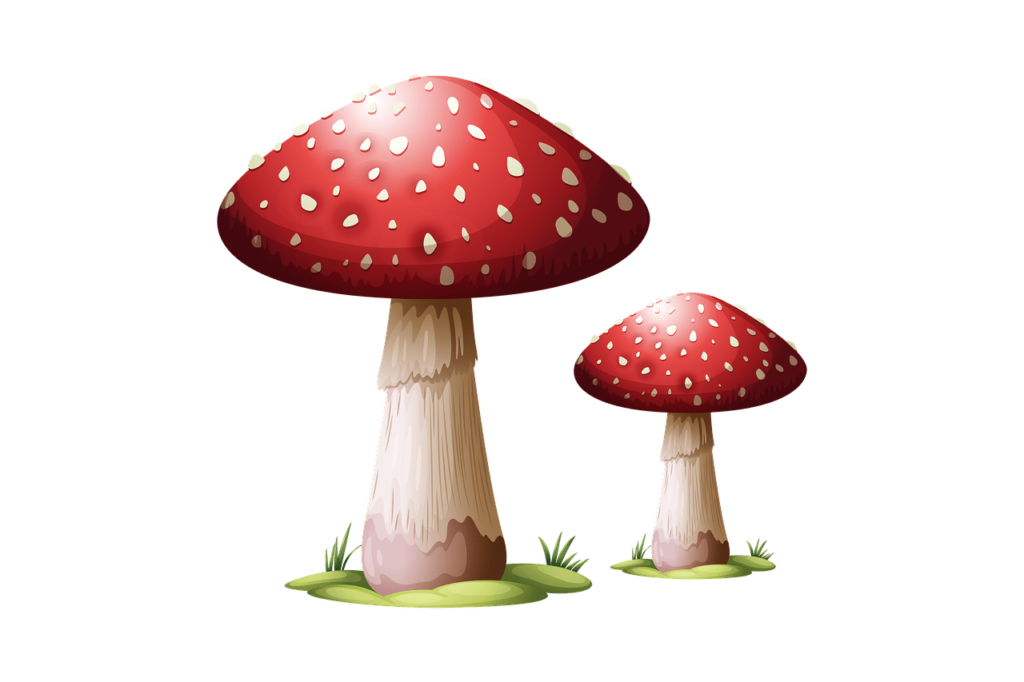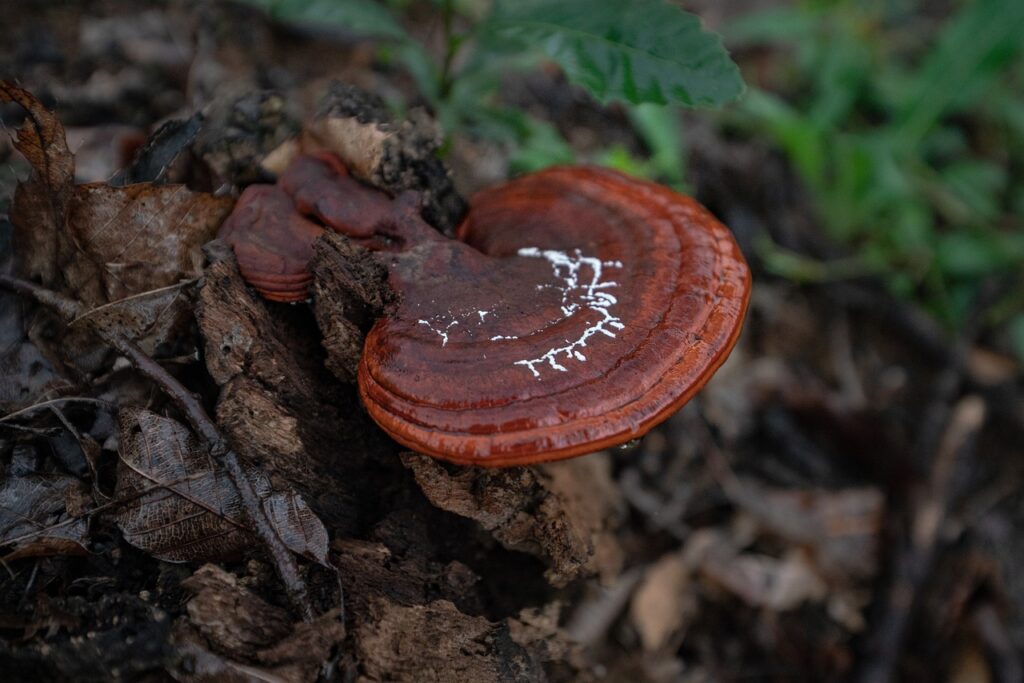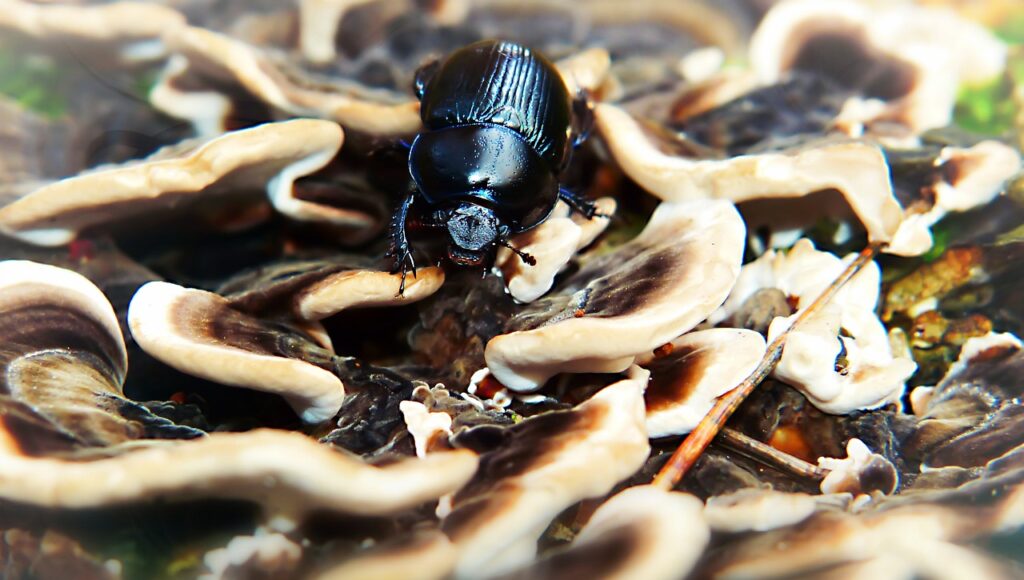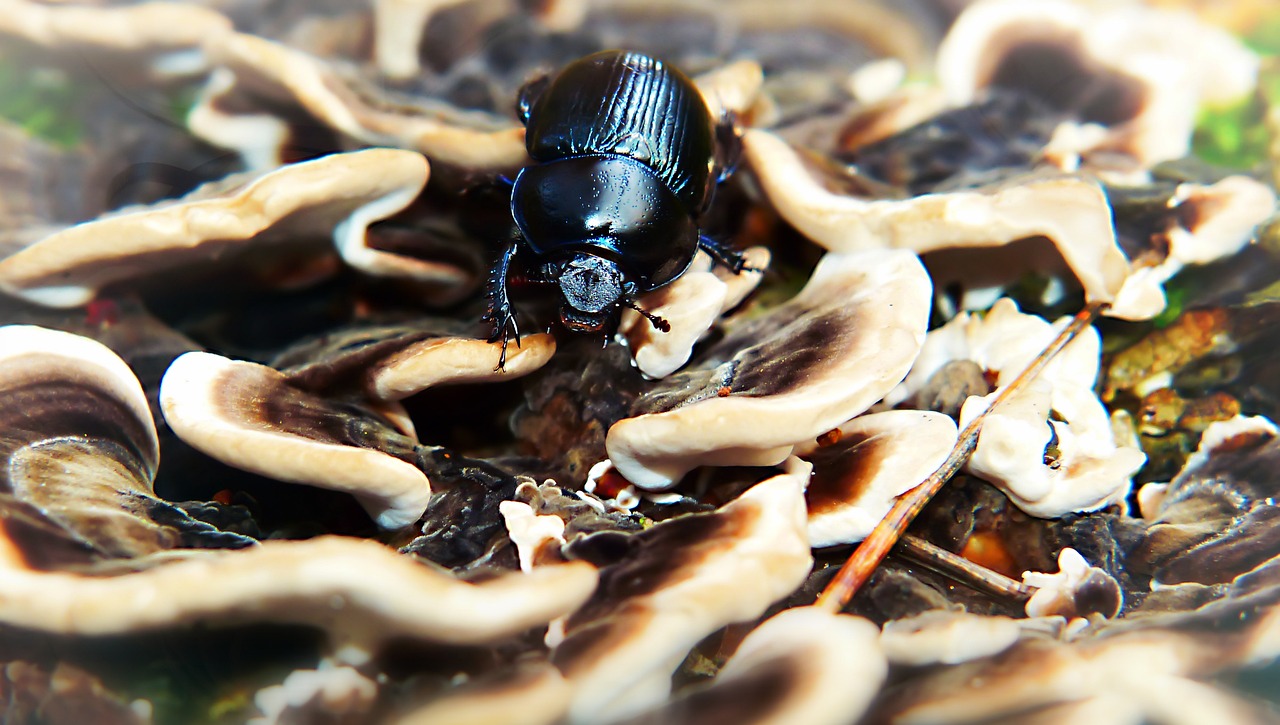In this article, we explore the fascinating world of mushrooms and their potential medicinal properties. With their rich history in traditional medicine and recent scientific studies, mushrooms have garnered attention as potential sources of healing and wellness. From boosting the immune system to combating inflammation and even reducing the risk of certain diseases, mushrooms are gaining recognition for their astounding potential. Join us as we uncover the secrets and wonders that lie within these extraordinary fungi.
Overview
What are mushrooms?
Mushrooms are a type of fungi that have been used for centuries in traditional medicine practices across various cultures. They come in various shapes, sizes, and colors, and can be found in forests, fields, and even on decaying logs. While some mushrooms are edible and used for culinary purposes, others possess medicinal properties that offer numerous health benefits.
Brief history of medicinal mushroom use
The use of medicinal mushrooms dates back thousands of years. Ancient civilizations like the Egyptians, Chinese, and Greeks recognized their potential healing abilities and incorporated them into their traditional medicine systems. Mushrooms were famous for their immune-boosting, anti-inflammatory, and mind-enhancing properties. Even today, these ancient beliefs continue to be validated by modern scientific research.
Types of Medicinal Mushrooms
Reishi
Reishi mushrooms, also known as Ganoderma lucidum, are highly regarded in traditional Chinese medicine for their ability to promote longevity and enhance vitality. These mushrooms have a vibrant red appearance and a woody texture. Reishi is believed to support the immune system, reduce stress, and improve sleep quality.
Lion’s Mane
Lion’s Mane mushrooms, scientifically known as Hericium erinaceus, resemble a lion’s mane with their cascading white spines. These mushrooms have gained popularity for their potential to promote brain health. Lion’s Mane is believed to enhance cognitive function, improve memory, and support nervous system health. It is often used as a natural remedy for neurological conditions such as Alzheimer’s disease and dementia.
Chaga
Chaga mushrooms, also referred to as Inonotus obliquus, grow predominantly on birch trees in cold climates. This mushroom has a black and charcoal-like appearance. Chaga is known for its potent antioxidant properties and immune-modulating effects. It is believed to enhance the body’s defense against diseases, reduce inflammation, and promote overall well-being.
Cordyceps
Cordyceps mushrooms, scientifically named Cordyceps sinensis, have a unique life cycle. They start as a parasitic fungus on caterpillars and then grow as a fruiting body. Cordyceps is widely used in traditional Chinese medicine as an adaptogen, helping the body cope with physical and mental stress. These mushrooms are believed to boost energy levels, improve athletic performance, and support respiratory health.
Turkey Tail
Turkey Tail mushrooms, scientifically known as Trametes versicolor, are named after their colorful and banded appearance that resembles the feathers of a turkey’s tail. These mushrooms have been extensively studied for their powerful immune-enhancing properties. Turkey Tail is believed to support the immune system, fight cancer cells, and improve overall well-being. It is often used as an adjunct therapy in cancer treatments.

Active Compounds in Medicinal Mushrooms
Polysaccharides
Polysaccharides are a type of complex carbohydrate found in medicinal mushrooms. They play a crucial role in the mushrooms’ immune-modulating effects. These compounds stimulate the activity of immune cells, such as macrophages and natural killer cells, to enhance the body’s defense mechanisms against pathogens and foreign invaders.
Triterpenoids
Triterpenoids are organic compounds found in medicinal mushrooms that contribute to their anti-inflammatory and antioxidant properties. These compounds help reduce inflammation in the body, supporting overall wellness. Triterpenoids also exhibit potential anticancer activity and are currently being investigated for their therapeutic applications in cancer treatment.
Beta-glucans
Beta-glucans are a type of polysaccharide that are prevalent in mushrooms like Reishi, Lion’s Mane, and Chaga. These compounds have immunomodulatory effects and can activate various components of the immune system. Beta-glucans enhance the body’s immune responses, promoting the effective defense against infections, bacteria, and even cancer cells.
Ganoderic acids
Ganoderic acids are bioactive compounds specific to Reishi mushrooms. They possess a wide range of pharmacological properties, including anticancer, anti-inflammatory, and hepatoprotective effects. These acids are believed to contribute to the overall health benefits associated with Reishi mushroom consumption.
Health Benefits of Medicinal Mushrooms
Boosting immune system
One of the most well-known and researched benefits of medicinal mushrooms is their ability to boost the immune system. Mushrooms like Reishi, Chaga, and Turkey Tail contain active compounds that stimulate the production and activity of immune cells, enhancing the body’s natural defense mechanisms. A strong immune system is crucial for fighting off infections, viruses, and diseases.
Reducing inflammation
Chronic inflammation is linked to various health conditions, including autoimmune disorders, cardiovascular diseases, and certain types of cancer. Medicinal mushrooms, such as Lion’s Mane and Cordyceps, possess anti-inflammatory properties that can help reduce inflammation in the body. By reducing inflammation, these mushrooms may contribute to improved overall health and well-being.
Fighting cancer
Several medicinal mushrooms, including Reishi, Chaga, and Turkey Tail, have demonstrated anticancer properties. They contain compounds that can inhibit the growth of cancer cells and stimulate the immune system to recognize and eliminate them. These mushrooms are often used as complementary therapies in cancer treatments to enhance the effectiveness of traditional therapies and improve patient outcomes.
Improving brain health
Lion’s Mane mushrooms, in particular, have captured attention for their potential brain-enhancing properties. They contain compounds that stimulate the production of nerve growth factor (NGF), a protein vital for the growth and maintenance of brain cells. By promoting NGF production, Lion’s Mane may improve cognitive function, memory, and overall brain health.
Supporting heart health
Some medicinal mushrooms, like Reishi, have been shown to support heart health by reducing cholesterol levels, improving blood flow, and regulating blood pressure. These mushrooms contain bioactive compounds that may help prevent cardiovascular diseases and maintain optimal heart function. However, further research is needed to fully understand the mechanisms underlying these effects.

Scientific Evidence
Animal and cell studies
Numerous studies conducted on animals and in laboratory settings have provided valuable insights into the potential health benefits of medicinal mushrooms. Animal studies have shown positive effects on immune function, tumor growth suppression, and cognitive function improvement. Cell studies have revealed the mechanisms of action behind various compounds found in medicinal mushrooms, helping to establish their therapeutic potential.
Human clinical trials
Human clinical trials are essential for validating the effectiveness and safety of medicinal mushrooms in humans. While many promising results have been observed, more extensive research is needed to establish conclusive evidence. Preliminary studies have shown potential benefits in immune modulation, cancer treatment support, cognitive function improvement, and inflammation reduction. Larger-scale and longer-term clinical trials are currently underway to further evaluate these findings.
Meta-analyses and systematic reviews
Meta-analyses and systematic reviews are important tools to assess the collective evidence available on the efficacy of medicinal mushrooms. These analyses help summarize and evaluate the findings of multiple studies, providing a comprehensive overview of the available research. While some reviews have reported positive effects of medicinal mushrooms, more standardized and high-quality studies are required to draw definitive conclusions.
Safety and Side Effects
Allergies and sensitivities
While medicinal mushrooms are generally safe for consumption, individuals with allergies to fungi or mushrooms may experience allergic reactions. It is essential to be aware of any potential allergies and sensitivities before incorporating medicinal mushrooms into your health regimen. If you experience any symptoms such as itching, hives, or difficulty breathing after consuming mushrooms, seek medical attention immediately.
Interaction with medications
Medicinal mushrooms may interact with certain medications, especially those that affect the immune system. If you are taking immunosuppressant drugs or have an underlying medical condition, consult with a healthcare professional before using medicinal mushrooms. They can assess potential interactions and provide guidance on the appropriate use of these supplements alongside your current medications.
Proper dosage and usage
Determining the proper dosage and usage of medicinal mushrooms can be challenging, as it varies depending on the mushroom type, individual health profile, and desired health benefits. It is advisable to start with small doses and gradually increase if necessary. Additionally, following the recommended dosage provided by reputable manufacturers or consulting a healthcare professional is crucial to ensure safe and effective use.

Forms of Medicinal Mushroom Products
Capsules and tablets
Capsules and tablets are convenient forms of medicinal mushroom products that offer a standardized dosage. They are easy to incorporate into daily routines and often come with clear instructions regarding dosage and usage. Capsules and tablets may contain powdered mushroom extracts or whole mushroom powders, allowing for concentrated and bioavailable forms of the active compounds.
Powders and extracts
Mushroom powders and extracts are versatile options for incorporating medicinal mushrooms into various recipes. Powders can be mixed into smoothies, teas, or foods, providing a natural and concentrated source of the mushrooms’ bioactive compounds. Extracts, on the other hand, offer a more potent and concentrated form of the mushrooms, making them suitable for individuals seeking higher therapeutic effects.
Teas and decoctions
Teas and decoctions are traditional methods of consuming medicinal mushrooms. They involve simmering the mushrooms in water to extract the beneficial compounds. Mushroom teas and decoctions offer a soothing and easy-to-digest form of consuming medicinal mushrooms. They can be enjoyed as a warm beverage or used as a base for soups and broths.
Choosing High-Quality Medicinal Mushroom Products
Source and cultivation methods
To ensure the safety and potency of medicinal mushroom products, it is essential to consider the source and cultivation methods. Look for products that are sourced from reputable suppliers and grown in controlled environments free from contaminants. Organic cultivation practices and sustainable sourcing methods can also indicate a high-quality product.
Third-party testing for purity and potency
Third-party testing provides an unbiased assessment of medicinal mushroom products, ensuring their purity and potency. Look for products that have undergone third-party testing for heavy metals, pesticides, and other contaminants. Additionally, check for certificates of analysis (COAs) that confirm the product’s composition and active compound levels.
Certifications and reputable brands
Certifications from reputable organizations, such as Good Manufacturing Practice (GMP) and USDA Organic, can serve as indicators of a high-quality product. These certifications ensure that the manufacturing processes and ingredients meet specific quality standards. Choosing products from reputable brands with a track record of producing safe and effective supplements is also advisable.

Dosage Recommendations
Varies based on mushroom type
The recommended dosage of medicinal mushrooms varies based on the specific mushroom type and the desired health benefits. It is crucial to follow the dosage guidelines provided by the manufacturer or consult with a healthcare professional for accurate dosing information. While some mushrooms may be consumed daily, others may require cycling or intermittent usage to maximize their effectiveness.
Consulting a healthcare professional
Consulting a healthcare professional, such as a naturopathic doctor or a registered herbalist, can provide individualized guidance on using medicinal mushrooms. They can assess your health needs, consider any underlying medical conditions or medications, and recommend the appropriate dosage and usage. Healthcare professionals can also monitor your progress and make adjustments as needed.
Starting with small doses
When incorporating medicinal mushrooms into your health regimen, it is advisable to start with small doses and gradually increase if necessary. This approach allows your body to adjust and helps identify any potential sensitivities or adverse reactions. Observe how your body responds to the mushrooms and pay attention to changes in overall well-being before adjusting the dosage.
Conclusion
Growing interest in mushrooms as medicine
The field of medicinal mushrooms is experiencing a resurgence of interest due to the growing body of scientific research supporting their health benefits. The rich history of traditional usage combined with modern scientific investigations highlights the potential of mushrooms as a valuable source of natural medicine. As more studies are conducted, the understanding of medicinal mushrooms’ therapeutic applications will continue to expand.
Further research and potential applications
While the scientific evidence for the health benefits of medicinal mushrooms is promising, there is still much to be explored. Further research is needed to uncover the specific mechanisms of action behind the mushrooms’ therapeutic properties, optimize dosage and usage, and identify potential drug interactions. With ongoing research and rigorous scientific investigation, mushrooms may hold even greater potential for various health conditions in the future.

